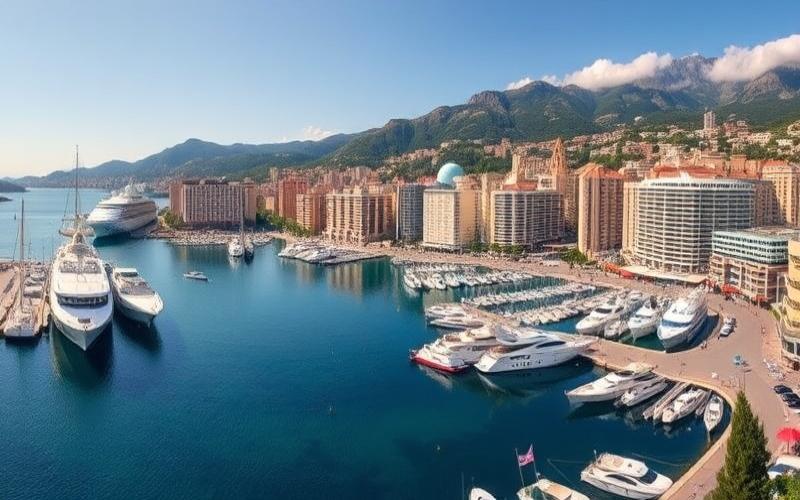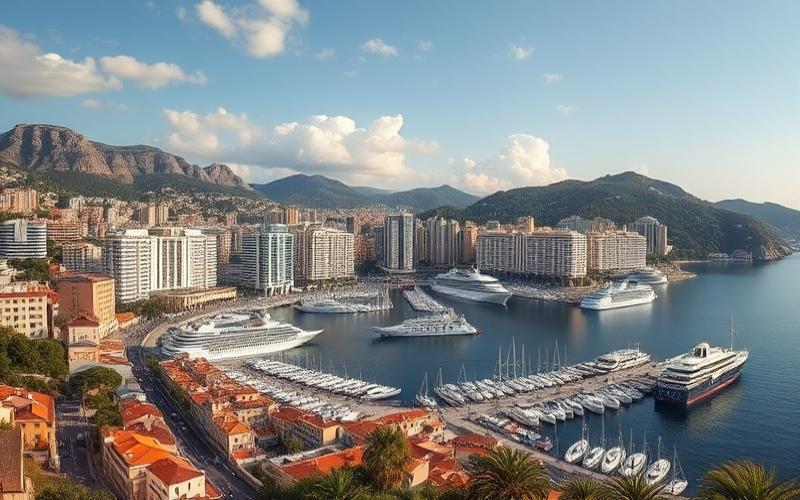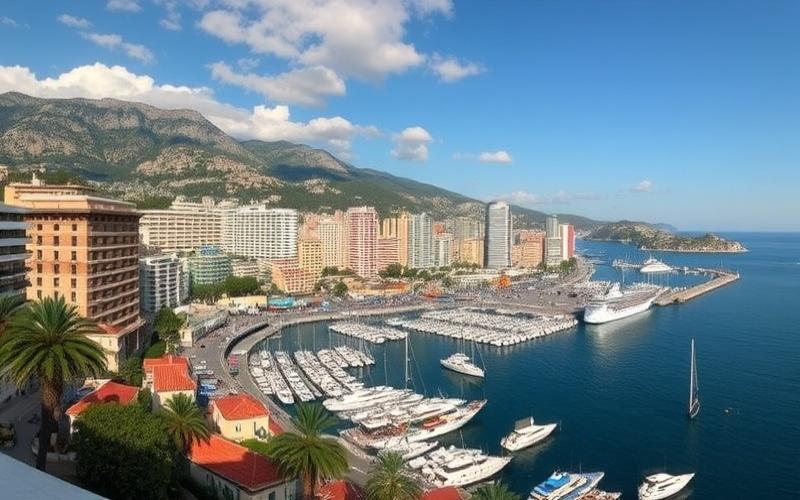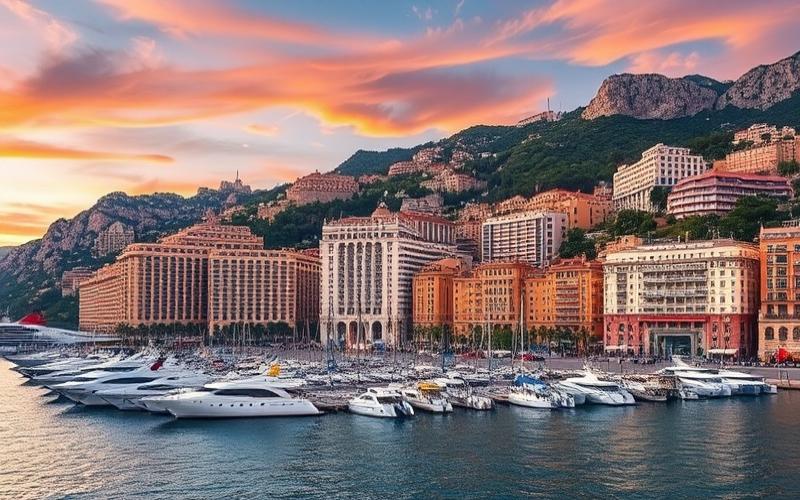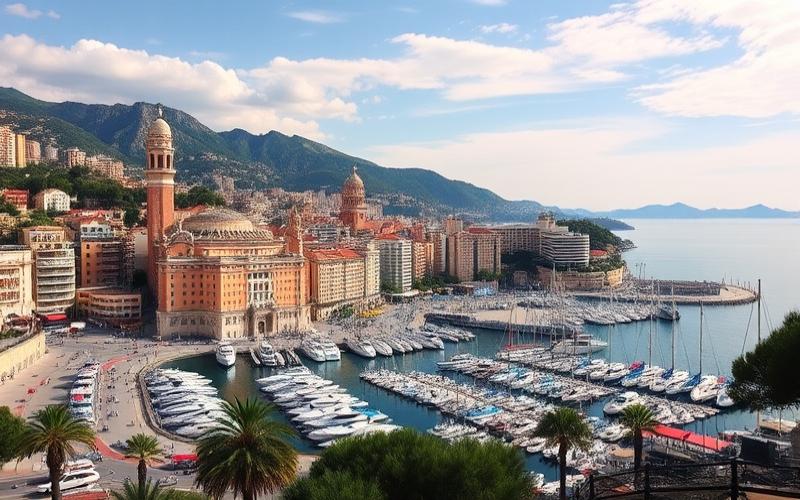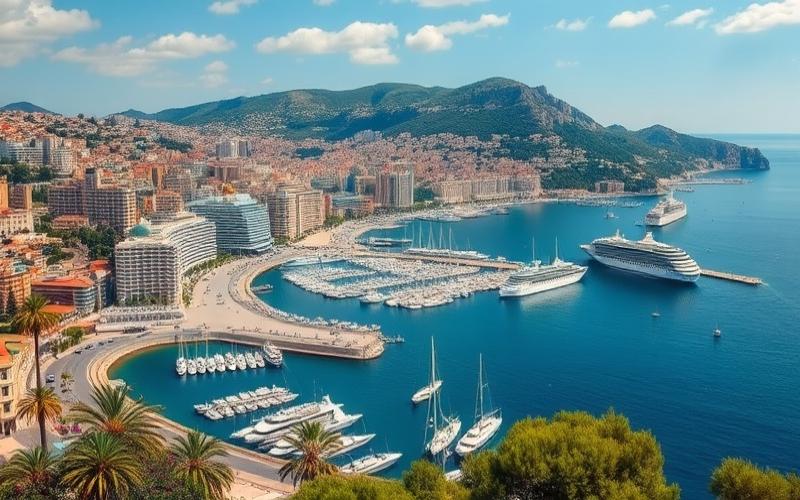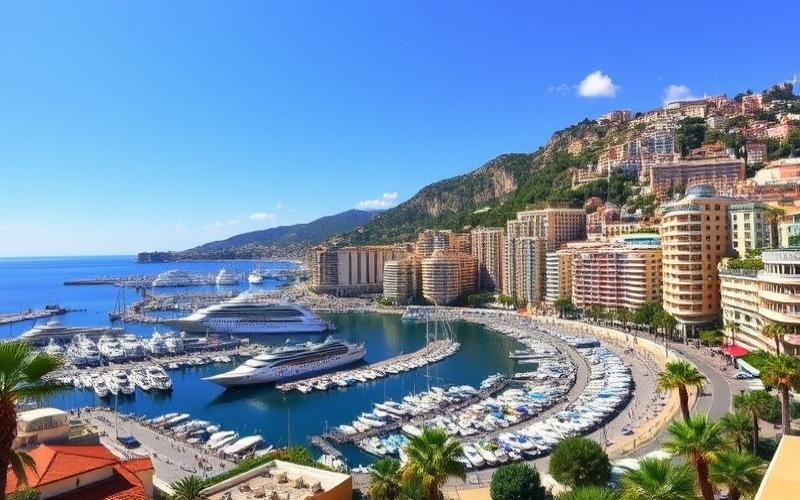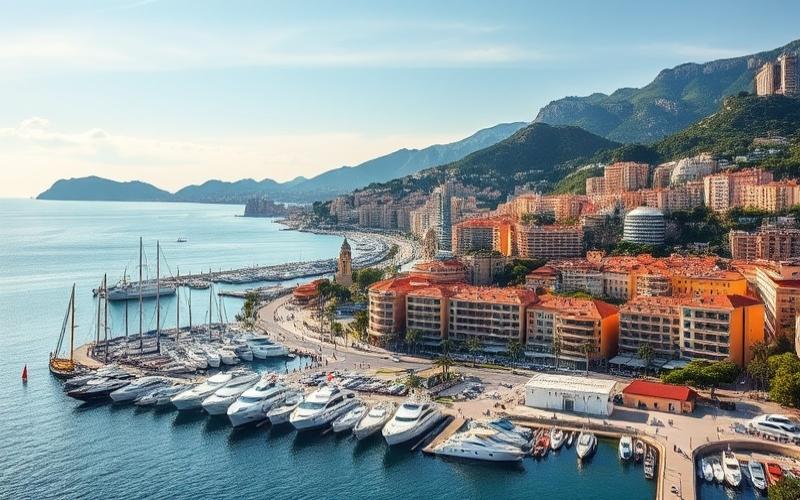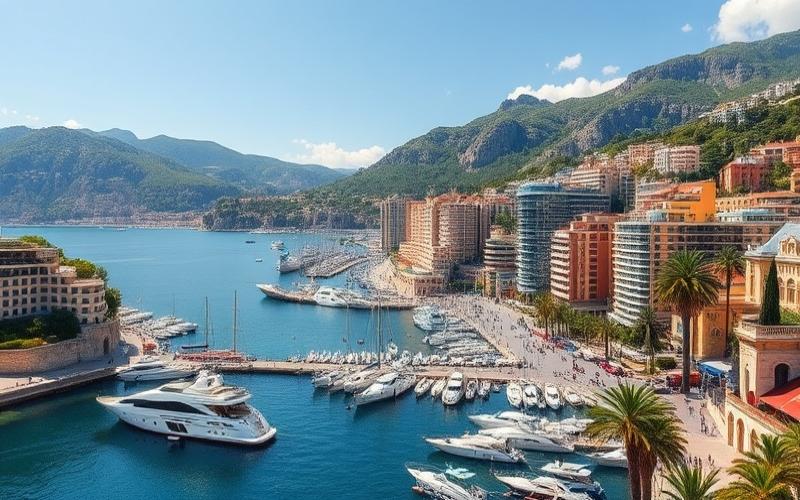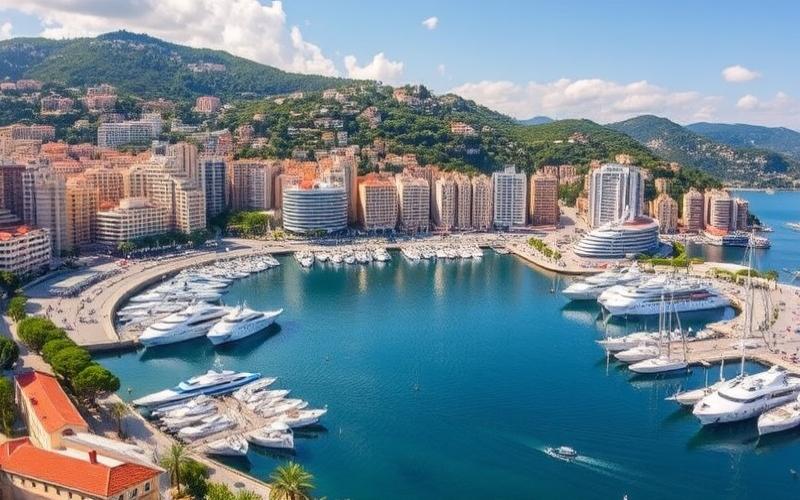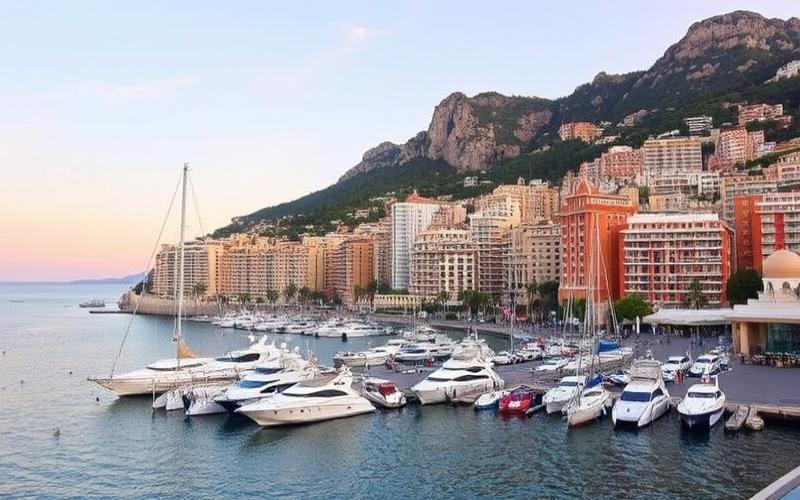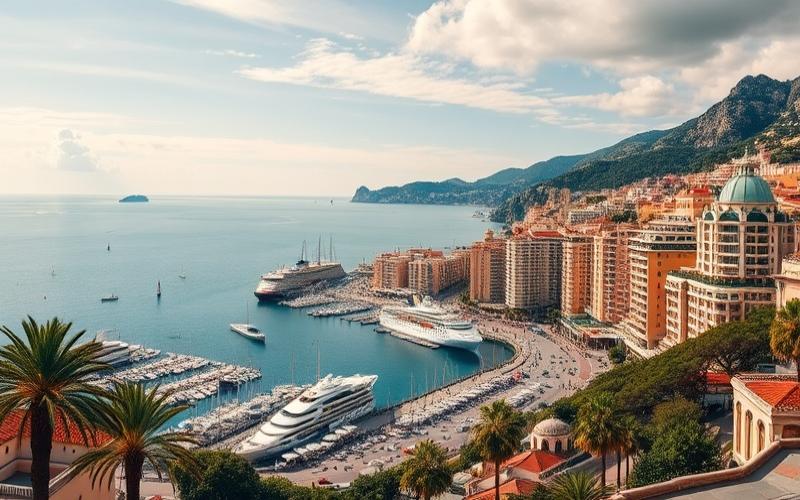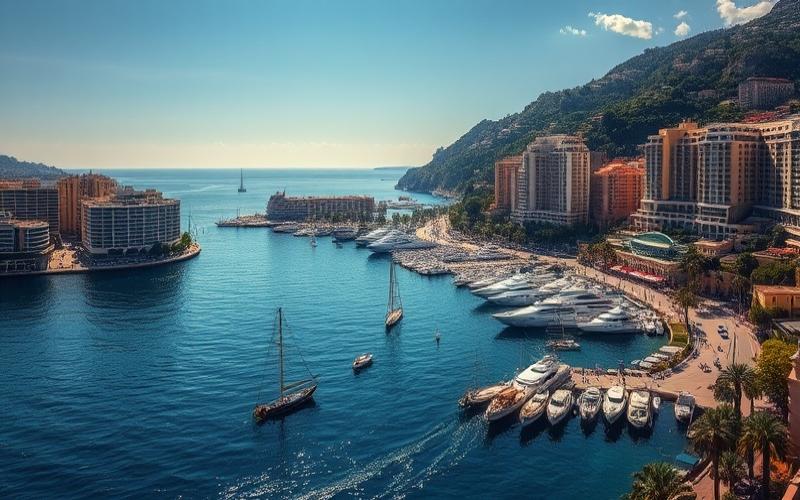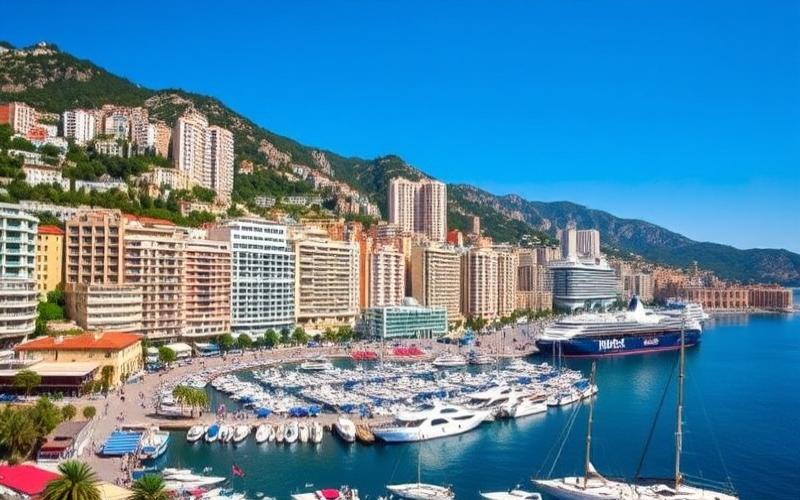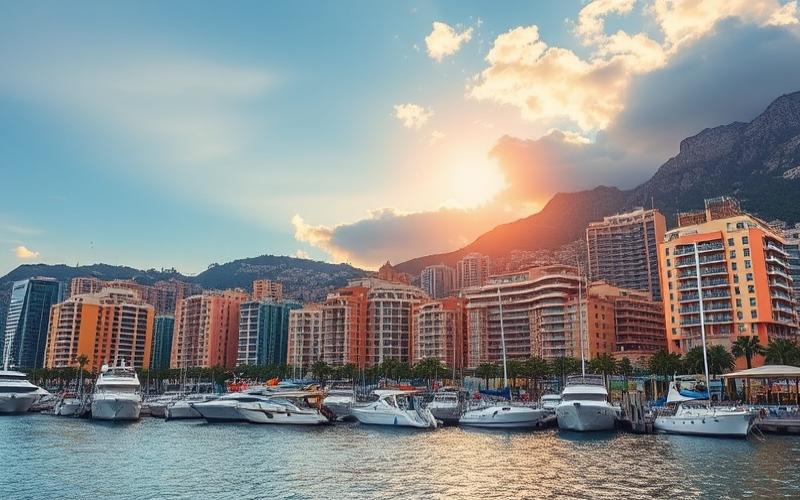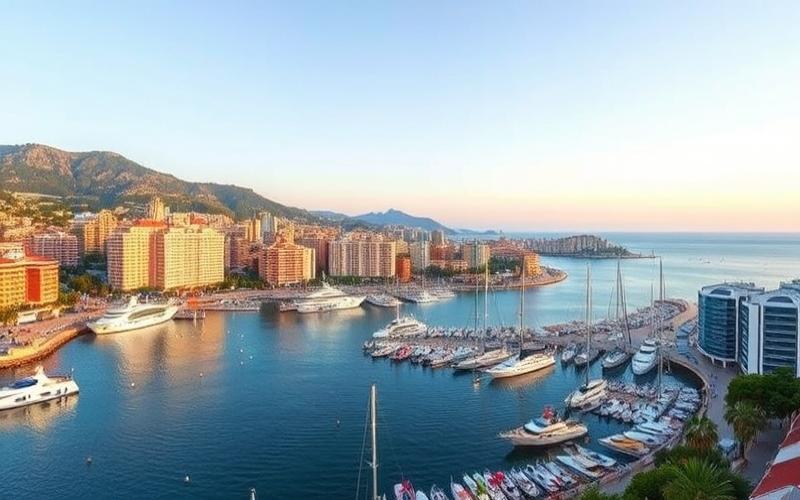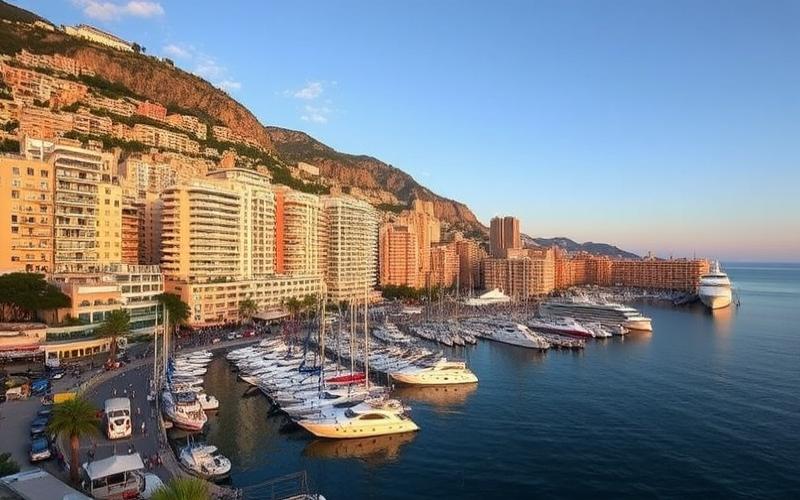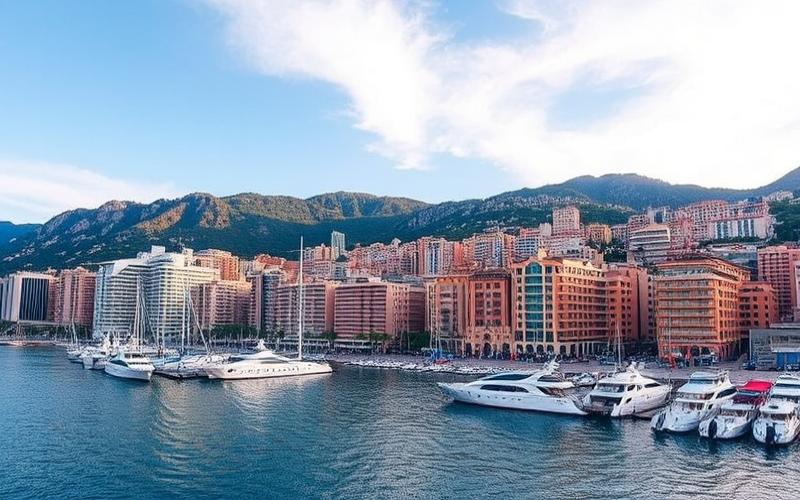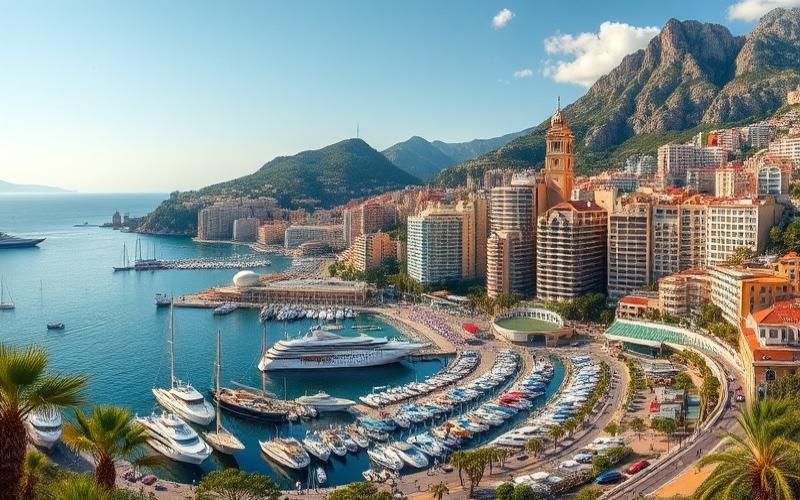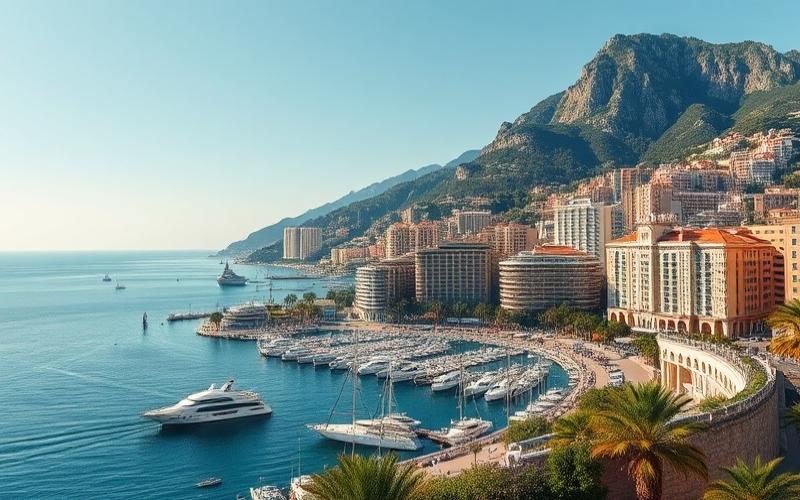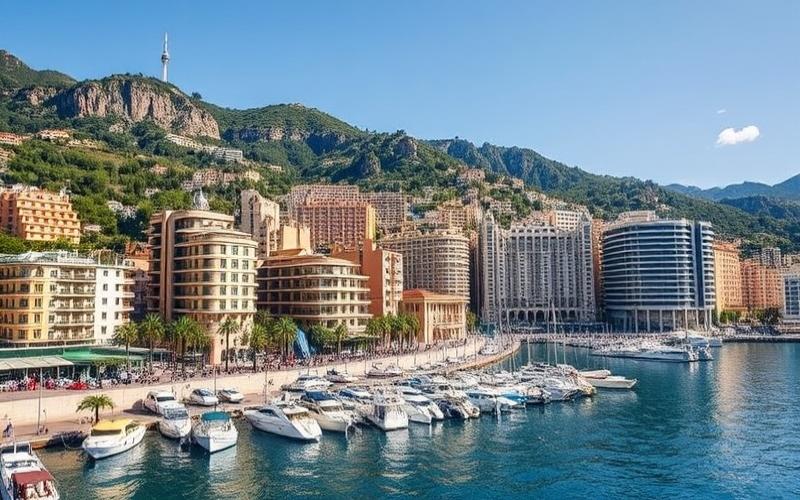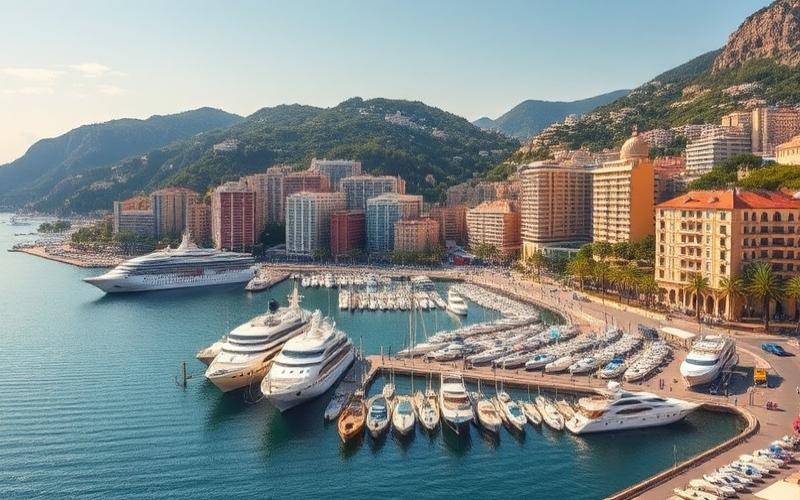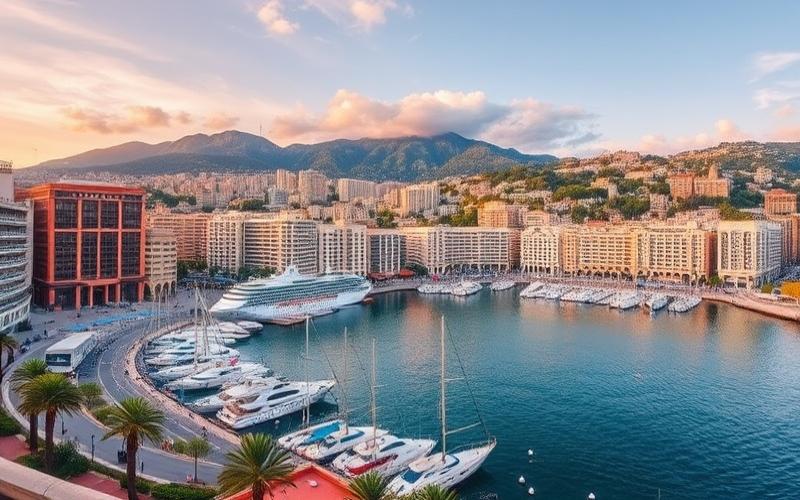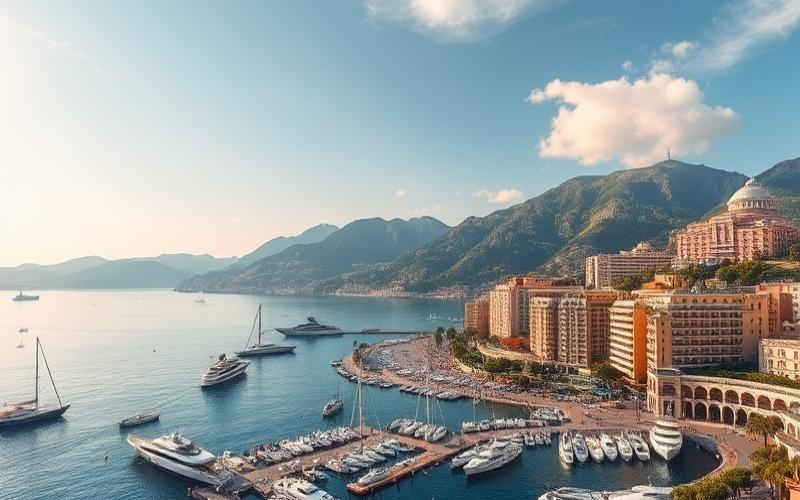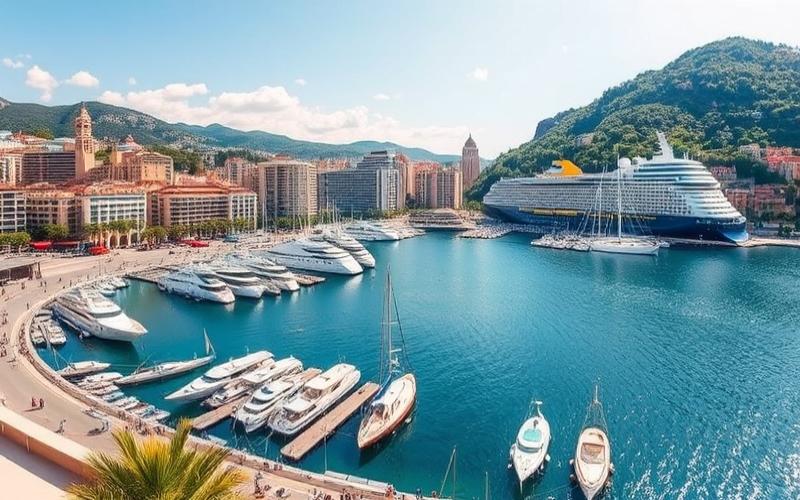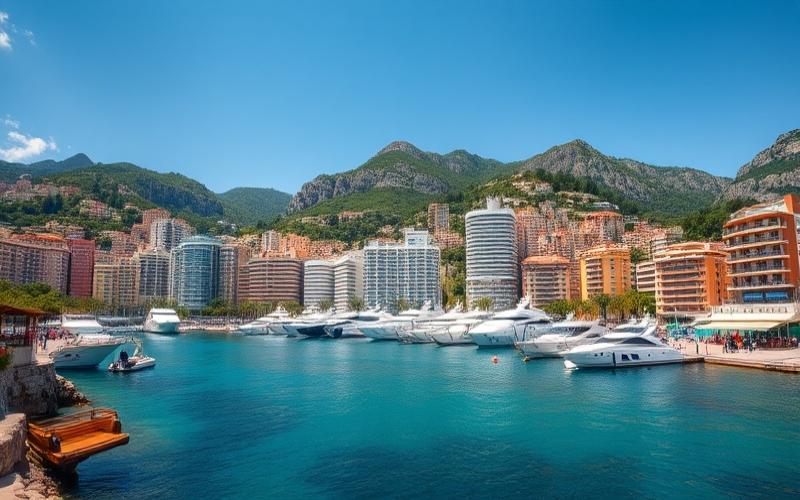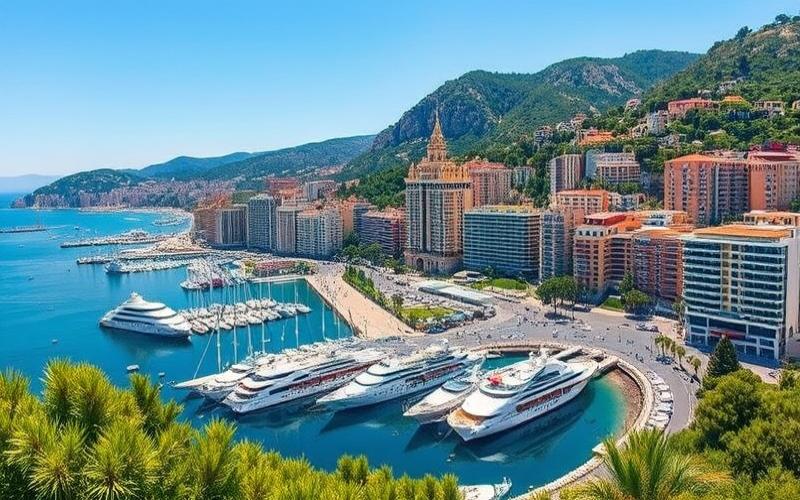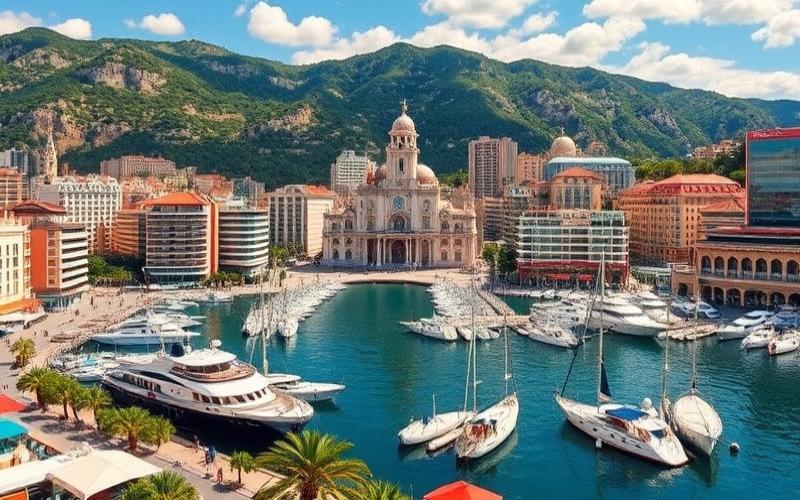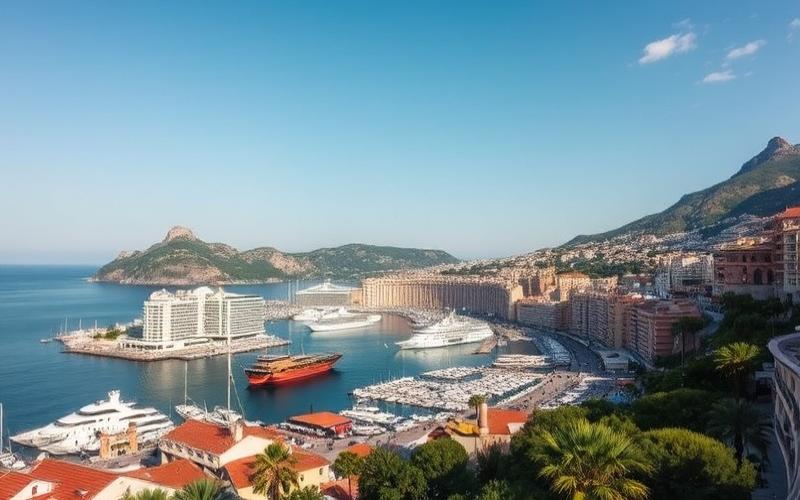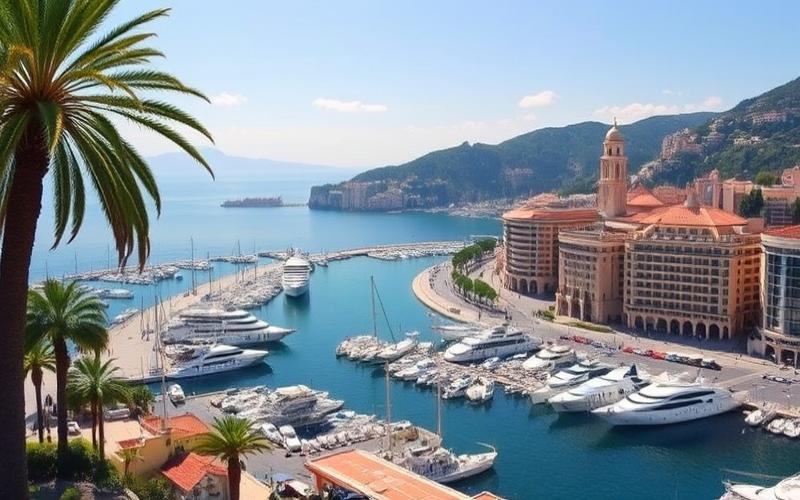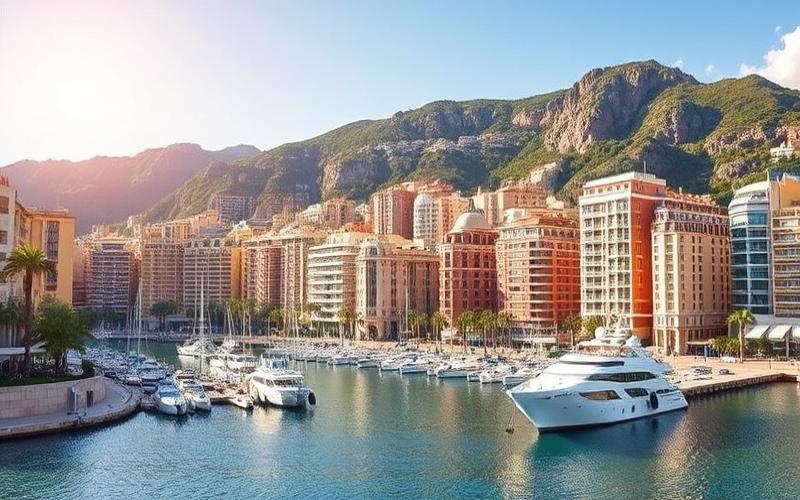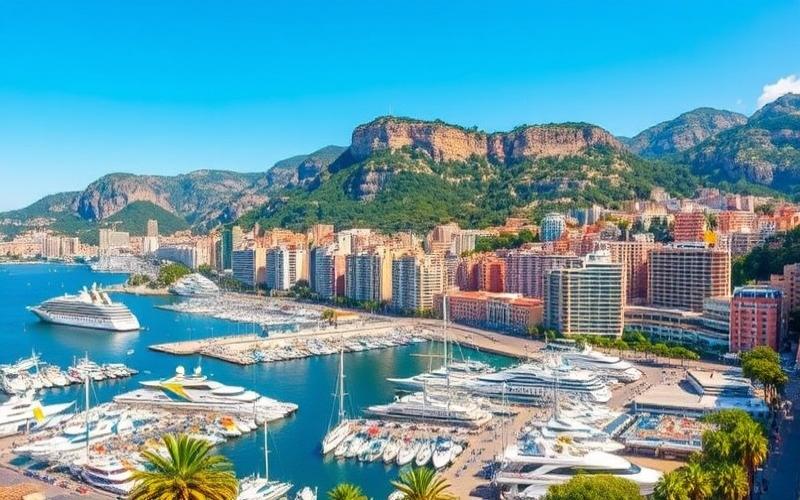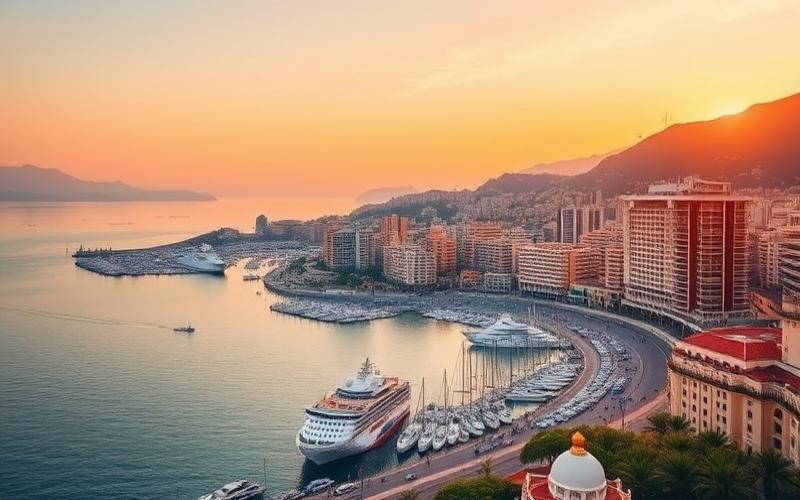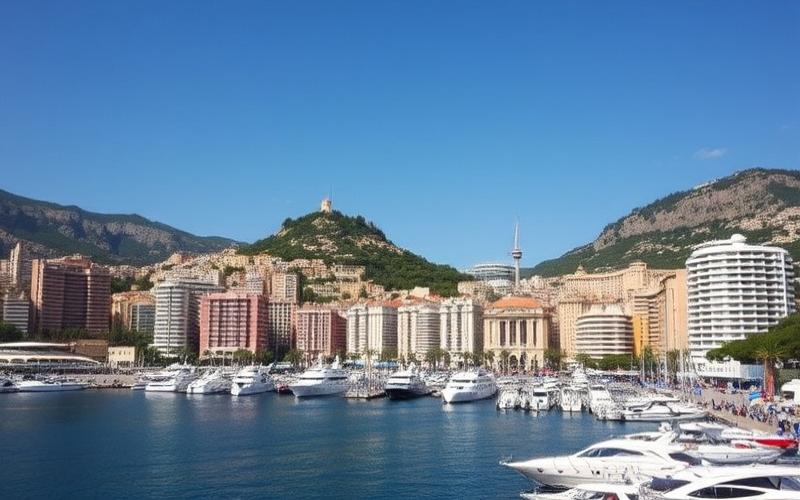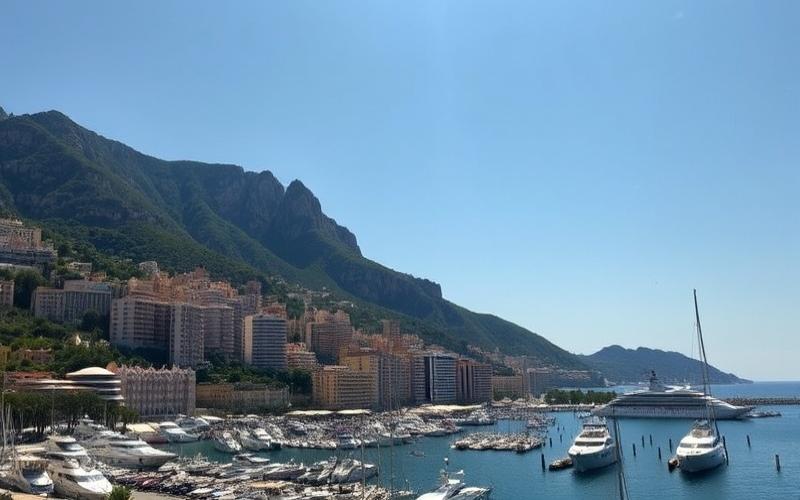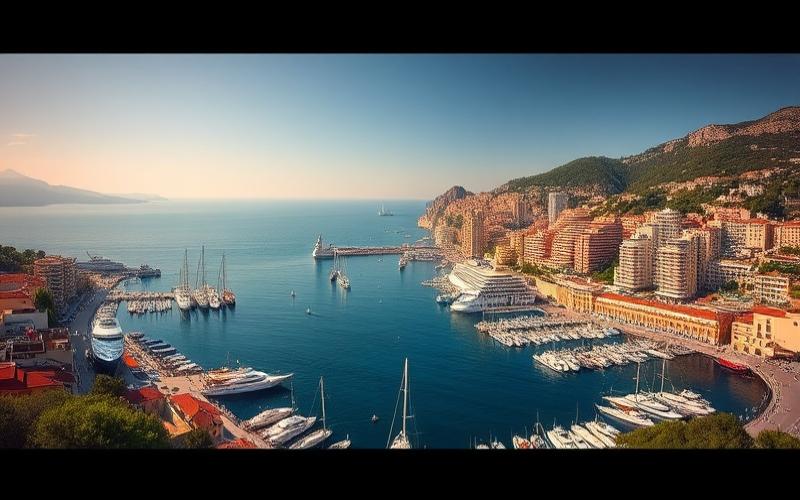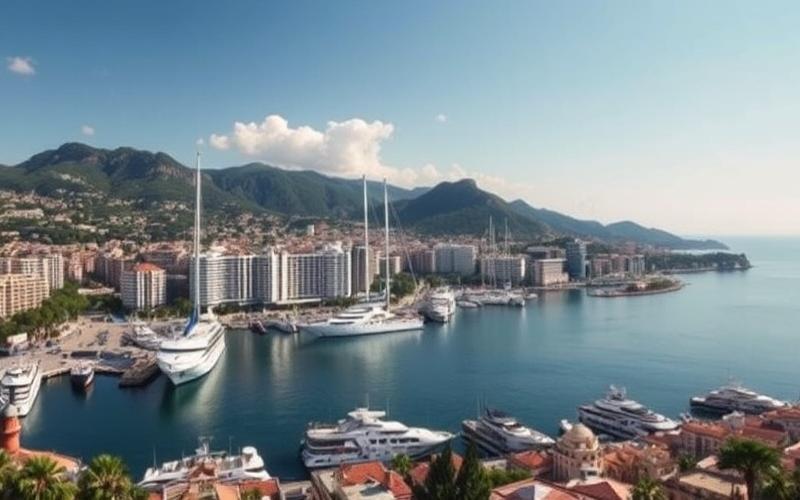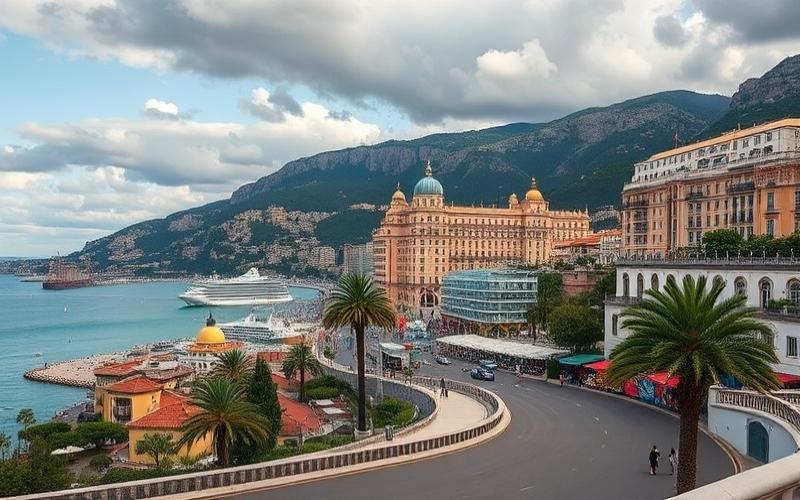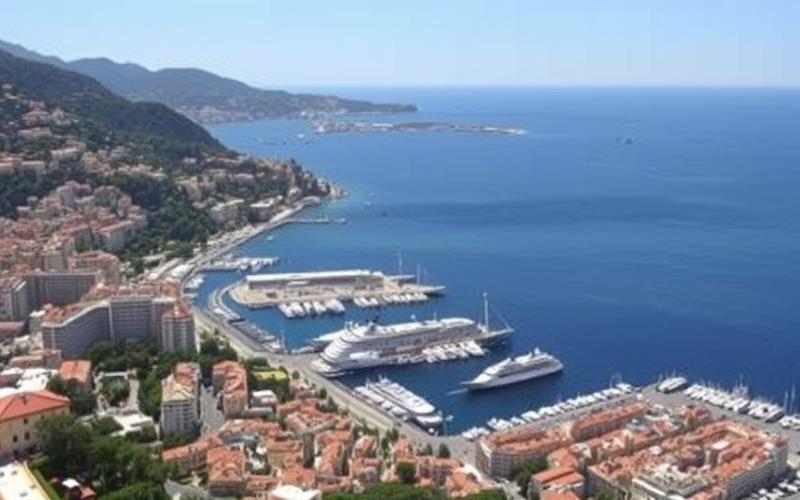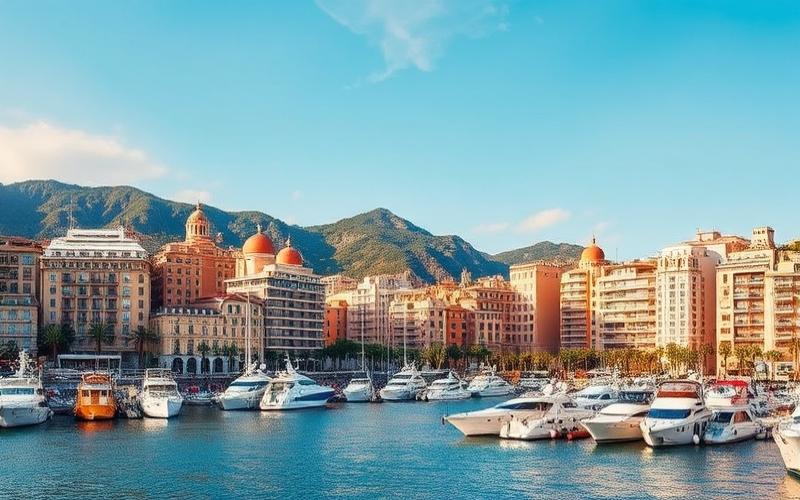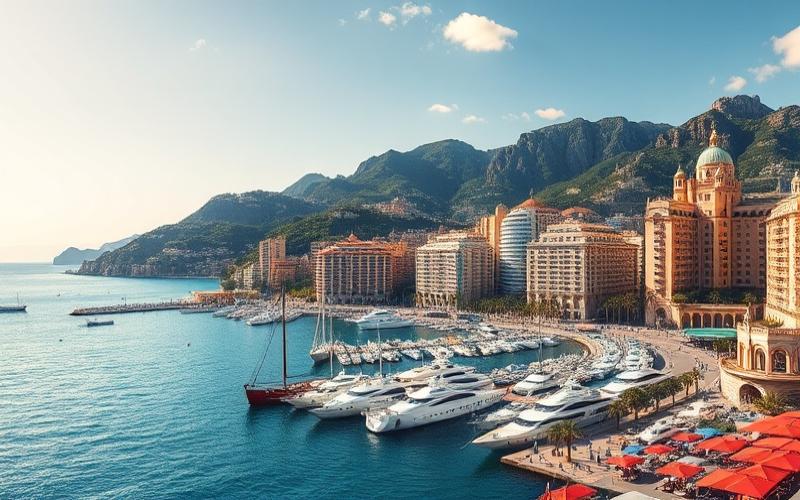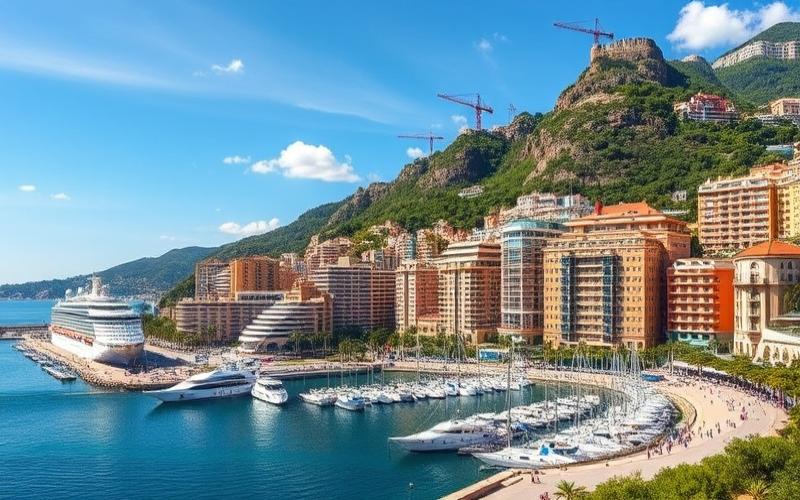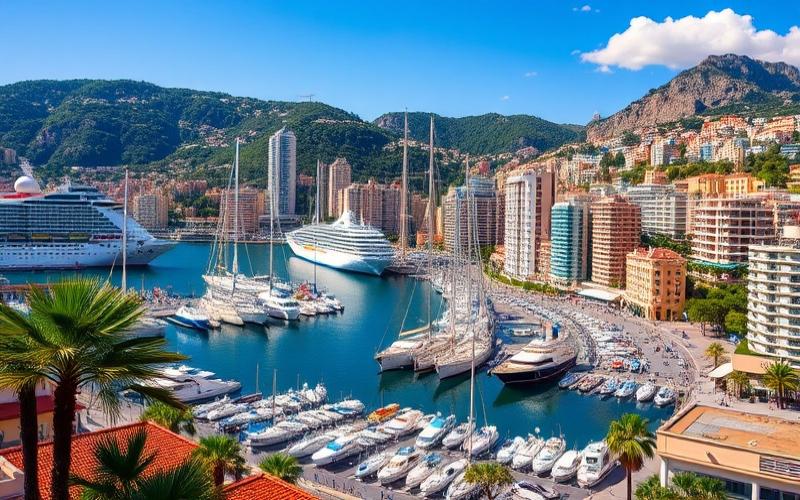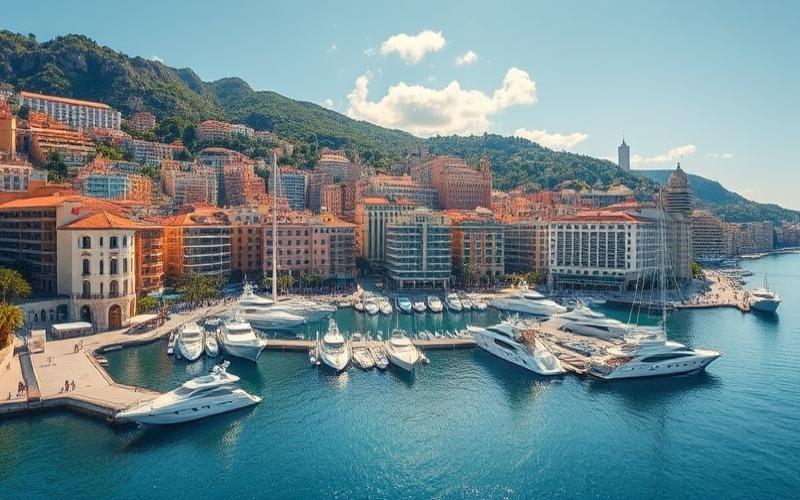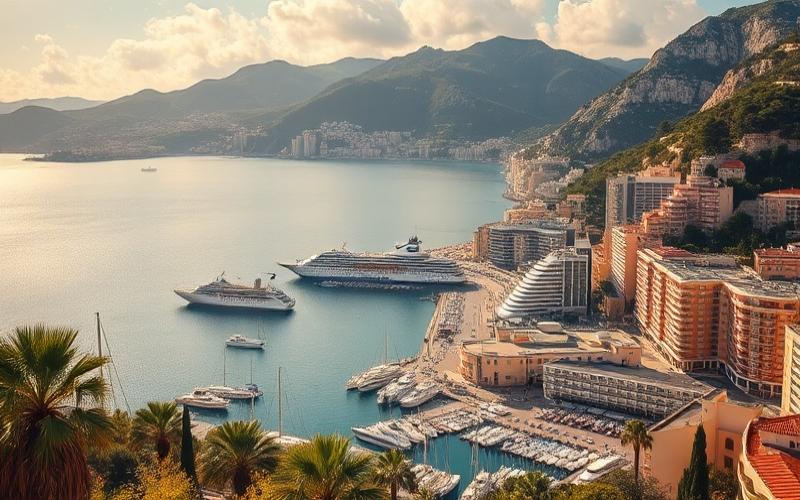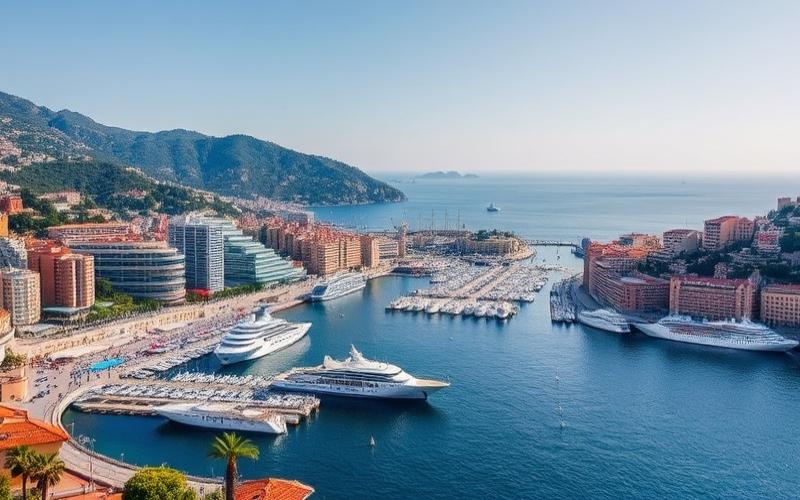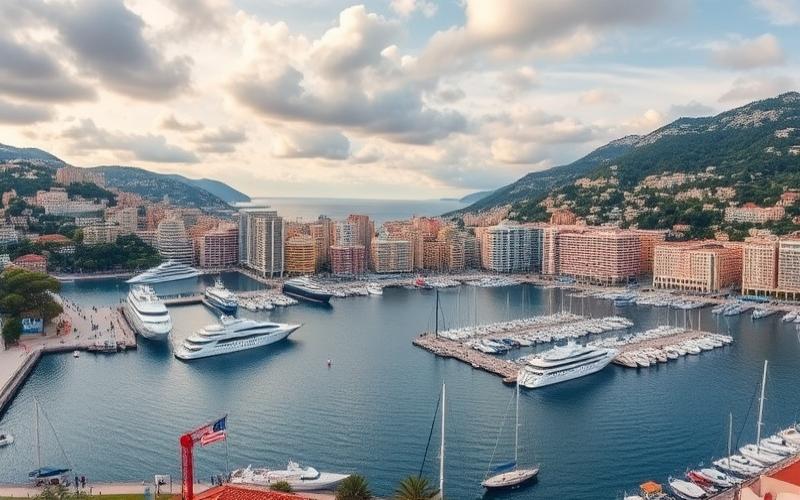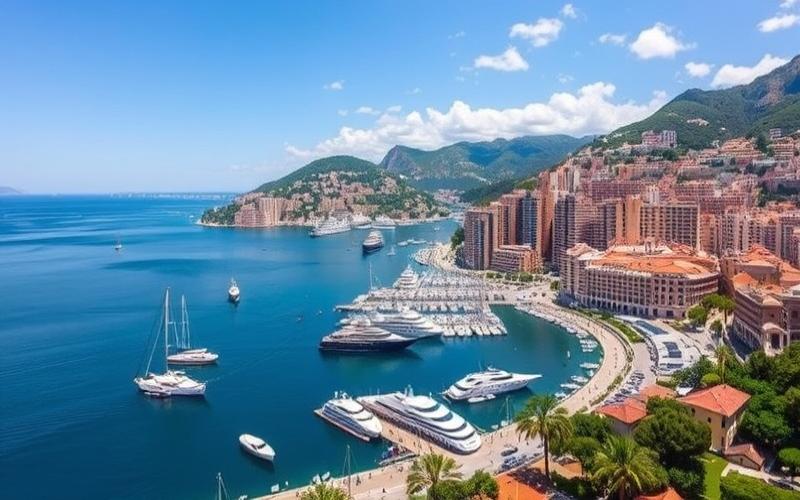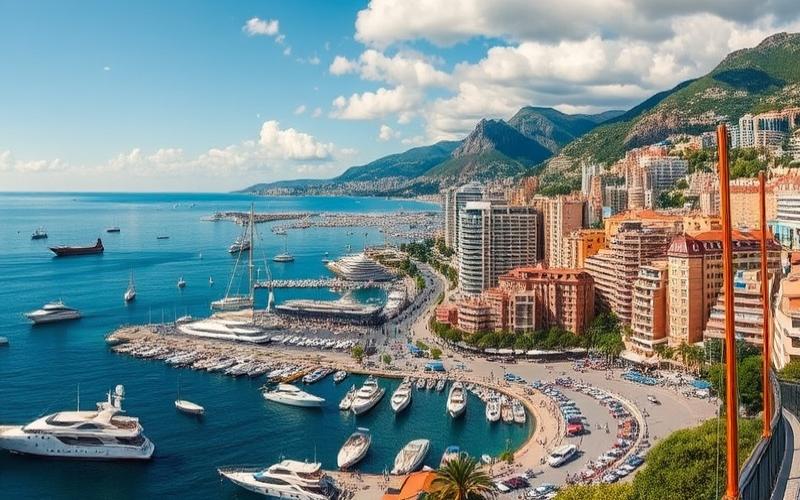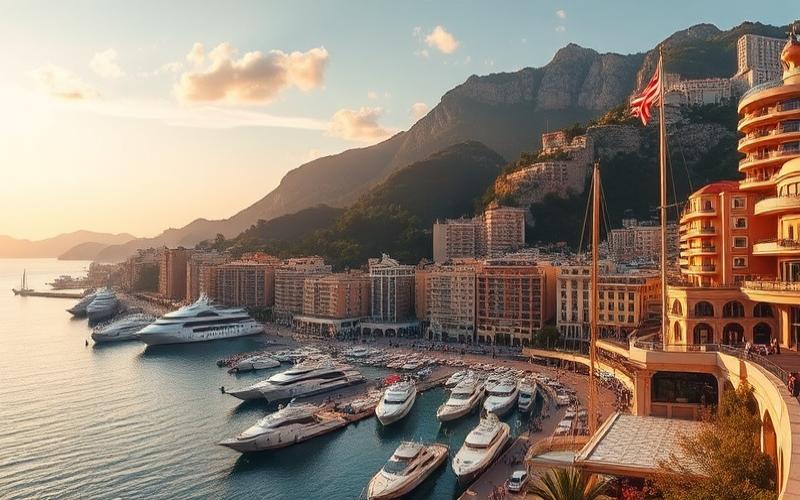
 Published on and written by Cyril Jarnias
Published on and written by Cyril Jarnias
Despite its reputation as a haven for global elites, Monaco’s real estate market is not immune to the geopolitical shocks shaking Europe, particularly the war in Ukraine. This situation is causing economic and political disruptions that reverberate to the heart of the Principality, affecting investors and residents.
While demand remains strong, prices could shift and purchasing behaviors may change due to these new dynamics. This article examines how these international tensions are impacting Monaco’s tiny and prestigious real estate market and explores the sector’s adaptations to this uncertain environment.
The Geopolitical Repercussions of the War in Ukraine on Monaco
The war in Ukraine has profoundly influenced Monaco’s diplomatic and economic relations with other nations, while generating notable repercussions on the local real estate market.
Diplomatic Relations and International Sanctions
- Monaco has strengthened its political ties with Ukraine, demonstrating solidarity through high-level participation in events such as the first peace conference for Ukraine held in Switzerland and parliamentary visits to Kyiv.
- The principality has aligned with European positions regarding respect for international law, particularly in joint statements reaffirming the principles of the UN Charter and implicitly condemning Russian aggression.
- On the multilateral front, Monaco has increased its humanitarian commitments (aid for displaced children, support for human rights) and enhanced its visibility with key players like the European Union and Canada.
New Political Alliances
Monaco is leveraging this dynamic to intensify dialogue with several European countries as well as with Ukraine. Bilateral meetings organized during international summits reflect Monaco’s desire to play a more assertive role in continental affairs while maintaining a neutral yet engaged stance.
| Dimension | Before 2022 | Since 2022 |
|---|---|---|
| EU Relations | Moderate | Strengthened (increased solidarity) |
| Ukraine Dialogue | Weak | Intensified (official visits, humanitarian collaborations) |
| Russia Position | Neutral/Cautious | Precautionary/sanctions followed |
Geopolitical Consequences on the Real Estate Market
International sanctions against Russia have had several direct consequences on Monaco’s real estate economy:
- Notable decrease in the flow of Russian investments into Monaco real estate following asset freezes or enhanced controls.
- Relative increase in investors from Western Europe or the Middle East seeking to benefit from Monaco’s stable status.
- Heightened vigilance in managing cross-border capital movements to avoid any indirect involvement with restricted funds.
List of main impacts:
- Temporary drop then stabilization in the total volume of high-end real estate transactions.
- Tighter administrative control on purchases involving certain nationalities or offshore structures.
- Regulatory adaptation aimed at strengthening financial transparency without harming overall attractiveness.
Local Economic and Political Adaptations
To maintain stability amid the tense international context:
- Active diversification of economic partnerships beyond the Russo-European zone,
- Internal strengthening of anti-money laundering controls,
- Official intensification of humanitarian support to display ethical commitment that reassures both foreign investors and institutional partners,
thus continuing to position itself as a safe haven despite a volatile geopolitical environment.
Good to Know:
The war in Ukraine has had geopolitical repercussions on Monaco, particularly in terms of diplomatic and economic relations. Faced with international sanctions imposed on Russia, Monaco had to reassess its political alliances, moving closer to European Union countries. This situation altered foreign investment flows, with some Russian investors seeking to move their capital to more stable jurisdictions, thereby affecting the local real estate market. In response, Monaco strengthened its transparency and financial regulation policies to reassure investors and maintain its reputation as a stable financial center. This led to adaptations in real estate policies, aiming to encourage diversification of foreign investments while preserving the market’s appeal for international buyers. For example, the country implemented tax incentives to attract investors from new partner countries, helping to stabilize its economy despite geopolitical turbulence.
Ukrainian Crisis and Its Influence on Monaco’s Real Estate Market
The Ukrainian crisis has profoundly influenced the flow of international investors to Monaco, particularly in the real estate market. While Russian high-net-worth individuals historically constituted a notable clientele for the Principality, geopolitical instability and Western sanctions have curbed their direct presence in this segment. However, Monaco has demonstrated strong resilience in the face of recent international upheavals.
The average price per square meter in Monaco rose from approximately €30,000 in 2012 to over €51,000 in 2023, representing an increase of more than 60% over ten years. Despite global uncertainties (war in Ukraine, European inflation), these values have not dropped and are even reaching historic records.
Comparative Table of Average Prices per m² in Monaco
| Year | Average Price per m² (€) |
|---|---|
| 2012 | ~30,000 |
| 2021 | ~52,000 |
| 2022 | ~50,982 |
| 2023 | ~51,418 |
- In terms of volume, the number of real estate transactions has declined: for example, between January and June 2024, there were only 174 resales compared to 206 for the same period the previous year.
- Despite this drop in the number of completed transactions (approximately -15% year-on-year), prices remain high due to the structural scarcity of local land and sustained diversified international demand.
Main Economic and Geopolitical Factors Explaining These Trends
- Rapid rise in global interest rates since late 2022: some investors are adjusting their budgets or postponing acquisitions.
- General increase in construction costs linked to global logistical disruptions caused by the war.
- Tighter restrictions targeting certain Russian nationals, leading to a partial but not major reorganization of the geographic origin of wealthy buyers.
- Unabated attractiveness due to Monaco’s tax status and its “safe haven” positioning in an unstable European context.
Summary List of Local Adaptations
- Strengthened regulatory control during transactions involving certain sanctioned nationalities.
- Real estate agencies focusing more on international diversification (Middle East, Asia…) to offset any temporary contraction from Russian or Ukrainian clients.
- Ongoing active development of high-end urban projects like Mareterra to attract an increasingly demanding clientele.
Expert Analyses
“The Principality has proven impervious to major external shocks… Professionals hope to see the market pick up again from October,” notes Gilles Graille (Pacific Agency).
Olivier Pradeau (Monaco Properties) specifies that “while volume is decreasing with the sharp rise in key interest rates since early 2023, the structural appeal remains unaltered.”
Summary Table – Impact of Ukrainian Crisis vs. Monaco Real Estate Market
| Aspect | Before Ukraine Crisis | After Conflict Began |
|---|---|---|
| Russian Investor Flow | Very significant | More discreet |
| Transaction Volume | Stable/slight increase | Moderate decrease |
| Average Prices | Steady growth / record (>50k €/m²) | |
| Foreign Demand | Strong | Diversified |
In this shifting yet robust context,
The Monaco model is adapting: attractiveness maintained among ultra-wealthy investors while local policies show flexibility in the face of new international requirements.
Good to Know:
The Ukrainian crisis has triggered an influx of international investors to Monaco, significantly altering the real estate market landscape. Before the conflict, real estate prices in Monaco were already among the highest in the world, but since Russia’s invasion of Ukraine, a significant increase in demand has been observed, particularly from wealthy Russian investors seeking a safe haven for their assets. This situation has driven up prices, intensifying pressure on the local market. To adapt to this trend, Monaco adjusted its fiscal and regulatory policies, aiming to stabilize the market while attracting sustainable investments. Experts suggest that this geopolitical reconfiguration could, in the long term, strengthen Monaco’s position as a prime destination for real estate investment, although some warn of potential market overheating and supply constraints.
Welcoming Ukrainian Refugees and Housing Challenges in Monaco
The Monegasque government has taken several initiatives to welcome Ukrainian refugees since the conflict began in 2022. Key measures include:
- Implementation of the Temporary Residence Permit (APS) allowing Ukrainian nationals with family or friendly ties to a Monegasque resident to be hosted in the territory.
- Creation of a coordination unit bringing together various government services and the Monaco Red Cross to organize reception, facilitate access to housing, healthcare, education, and social services.
- Direct financial aid, including a daily allowance per person as well as food vouchers to ensure a degree of autonomy for hosted families.
- Specific support: psychological help, intensive French language learning if needed, and registration with the Employment Service to promote professional integration. The state also covers up to 80% (or even 100% depending on the situation) of medical costs.
As of January 2025:
| Administrative Status | Number of Ukrainians Concerned |
|---|---|
| Temporary Permits Issued | 274 |
| APS Neutralized | 219 |
| Current APS Holders | 55 |
| Refugees Granted Residence Cards | 25 |
Main conditions: be a Ukrainian national residing in Ukraine before the conflict and justify a proven family or friendly attachment to Monaco.
However, the mass reception poses considerable economic and social challenges in a Principality where:
- Living space is extremely limited
- Real estate prices are among the highest in the world
“The increased demand linked to the Ukrainian crisis adds to the already very strong demand from permanent residents. Each new case requires a delicate balance between international solidarity and preservation of the local social fabric. Temporary solutions have been found through close collaboration with some neighboring French municipalities that offer more available housing.”
This context has led Monaco to develop strengthened partnerships:
- With France (notably Nice), to occasionally find accommodations outside the Principality to ease internal pressure.
- With the local associative sector, mobilized around temporary rehousing in certain hotel structures or apartments made available free of charge.
“If these migratory movements were to become permanent or intensify, it would further accelerate land scarcity and mechanically reinforce the safe-haven but also speculative value of housing here – while undoubtedly requiring more regulation on rental uses.”
In summary: Monaco combines targeted solidarity measures and international cooperation to respond quickly but selectively to humanitarian needs, while closely monitoring its fragile residential balance in the face of growing tensions on the local real estate market.
Good to Know:
Monaco has committed to welcoming Ukrainian refugees by establishing integration programs, notably through partnerships with international and local organizations. However, the major challenge lies in providing adequate housing in an already tight real estate market, characterized by high prices and limited space. Local real estate experts emphasize that the government is striving to balance the needs of new arrivals with those of permanent residents by exploring new flexible solutions. Initiatives such as housing subsidies, public-private partnerships to build temporary housing, and the conversion of underutilized spaces are underway to alleviate market pressure. These efforts, while crucial, also raise questions about their long-term impact on the Monegasque real estate sector, requiring continuous vigilance and enhanced collaboration to avoid any socio-economic imbalance.
Investment Strategies in Monaco Amid Geopolitical Tensions
Monaco’s economic environment remains particularly resilient, with key sectors such as real estate, tourism, and restaurants showing strong resistance to crises. However, the principality is not impervious to global geopolitical dynamics: international tensions and the slowing European economy are gradually influencing Monaco, which is tending to converge towards the economic performance of its European neighbors whereas it usually outperforms them. Monegasque finance could be more affected by measures like the “grey list,” while the constitutional reserve fund remains a major financial asset to cushion external shocks.
“Monaco is a special case. Real estate, tourism, and restaurants are very resilient sectors, but finance and services could be affected by the ‘grey list.’ Monaco might gradually converge towards European economic performance”
The war in Ukraine has had a significant impact on real estate investments in Monaco:
- Altered capital flows: some Russian investors have seen their assets frozen or restricted due to international sanctions.
- Shift in demand: a growing share of incoming capital now comes from other regions (Middle East, Asia), slightly changing the buyer profile.
- Strategic repositioning: facing restrictions on some traditional buyers, real estate agencies are enhancing their appeal to other wealthy clienteles.
In the face of increased geopolitical risks, several strategies are favored by investors:
- Greater diversification of the real estate portfolio (acquisition in different neighborhoods or segments).
- Search for opportunities outside the traditional residential sector (high-end retail or offices).
- Exploration of new promising markets outside Europe to compensate for any local contraction.
| Strategy | Objective |
|---|---|
| Diversification | Reduce risk exposure |
| New Areas | Increase potential yield |
| International Arbitrage | Take advantage of cyclical gaps |
Local legislation plays an ambivalent role:
- Attractive fiscal policies partly protect against certain external instabilities.
- However, dependence on the European context can indirectly expose Monaco if it deteriorates or imposes new regulatory constraints.
Monaco also plans to soon establish cross-border free zones to attract more investment while creating new local economic dynamism.
The evolution of real estate prices during these periods shows:
- Stability or even slight increase thanks to constant global demand for this ultra-privileged market
- Resilience even during acute episodes – though with a possible slowdown in the upward pace if uncertainty persists
Current opportunities despite uncertainty:
- Continuous valuation linked to Monaco’s land scarcity
- Legal security and political stability attracting more international high-net-worth individuals
- Possibility for some proactive institutional or private investors:
- To anticipate a post-crisis rebound,
- To temporarily seize some negotiable margins from motivated sellers
Despite the uncertain global context, investing in Monaco real estate remains synonymous with:
- Wealth preservation
- Access to a stable fiscal environment
- Strategic opportunity provided there is active and diversified management of the real estate portfolio.
Good to Know:
Monaco, bolstered by its economic stability and attractive tax regime, is nevertheless sensitive to global geopolitical dynamics, such as those generated by the war in Ukraine. This situation has led to a decline in Russian capital flows, traditionally significant, which paradoxically increased the interest of other nationalities in the prestigious Monegasque market, thus driving a continuous rise in real estate prices despite global uncertainty. To guard against risks related to geopolitical tensions, investors are adopting portfolio diversification strategies, while also examining capital protection legislation which in Monaco, although robust, could be subject to new regulations in case of escalating global tensions. Furthermore, by exploring expansion into peripheral sectors or being alert to opportunities created by market fluctuations, investors can leverage the inevitable post-crisis readjustment. Thus, strategic adjustments and persistent analysis of the legislative landscape and market trends are crucial to navigate instabilities while capitalizing on opportunities emerging in this period of global uncertainty.
Disclaimer: The information provided on this website is for informational purposes only and does not constitute financial, legal, or professional advice. We encourage you to consult qualified experts before making any investment, real estate, or expatriation decisions. Although we strive to maintain up-to-date and accurate information, we do not guarantee the completeness, accuracy, or timeliness of the proposed content. As investment and expatriation involve risks, we disclaim any liability for potential losses or damages arising from the use of this site. Your use of this site confirms your acceptance of these terms and your understanding of the associated risks.

